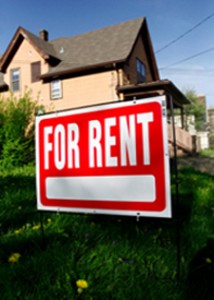Is the New American Dream House a Rental?
 The latest statistics from the US housing market slide point to what may be a new reality—and, perhaps, a key to economic recovery. More Americans than ever are walking away from homes and mortgages they are upside-down in and replacing a monthly house payment with a monthly rent payment.
The latest statistics from the US housing market slide point to what may be a new reality—and, perhaps, a key to economic recovery. More Americans than ever are walking away from homes and mortgages they are upside-down in and replacing a monthly house payment with a monthly rent payment.
The combination of mortgage balances that far exceed the value of their home and cheap rents for premium housing is driving people away from the former ideal of home ownership. Statistics gathered from national reports reveal that US home ownership has declined more in the last five years than in the last 20—from 69.2% to 67.6%.
While some people simply need to save money because of job losses or other economy-related factors, others appear to be taking advantage of a situation they blame on banks and the economy. Discontinuing mortgage payments and waiting for the bank to kick them out frees up cash for vacations and more restaurant meals.
These so-called “strategic defaults” by homeowners who can afford to pay are projected to exceed one million in 2009, according to credit firm Experian. Folks who purchased overpriced homes with flawed mortgages find that they can still live on golf courses or in exclusive neighborhoods by renting someone else’s foreclosed home.
The strange effects on the economy are two sides of the same coin: banks and investors stand to face huge losses as more people default on their mortgages, leading to potential losses to taxpayers; on the other side is an unprecedented debt relief situation that can put more cash in consumers’ pockets. According to data provider LPS Applied Analytics, the added cash flow could mean $5 billion per month.
Adding to the rush to mortgage default is the declining stigma in losing a home. When the minority becomes the average person, whatever was considered “bad” or “wrong” becomes “okay.” (Everybody else is doing it, why shouldn’t we?) The outcome is unpredictable, but for landlords and rental property investors, one upside is more renters coming into the market. Landlords must decide how to deal with these new renters—with foreclosures on their credit histories.
